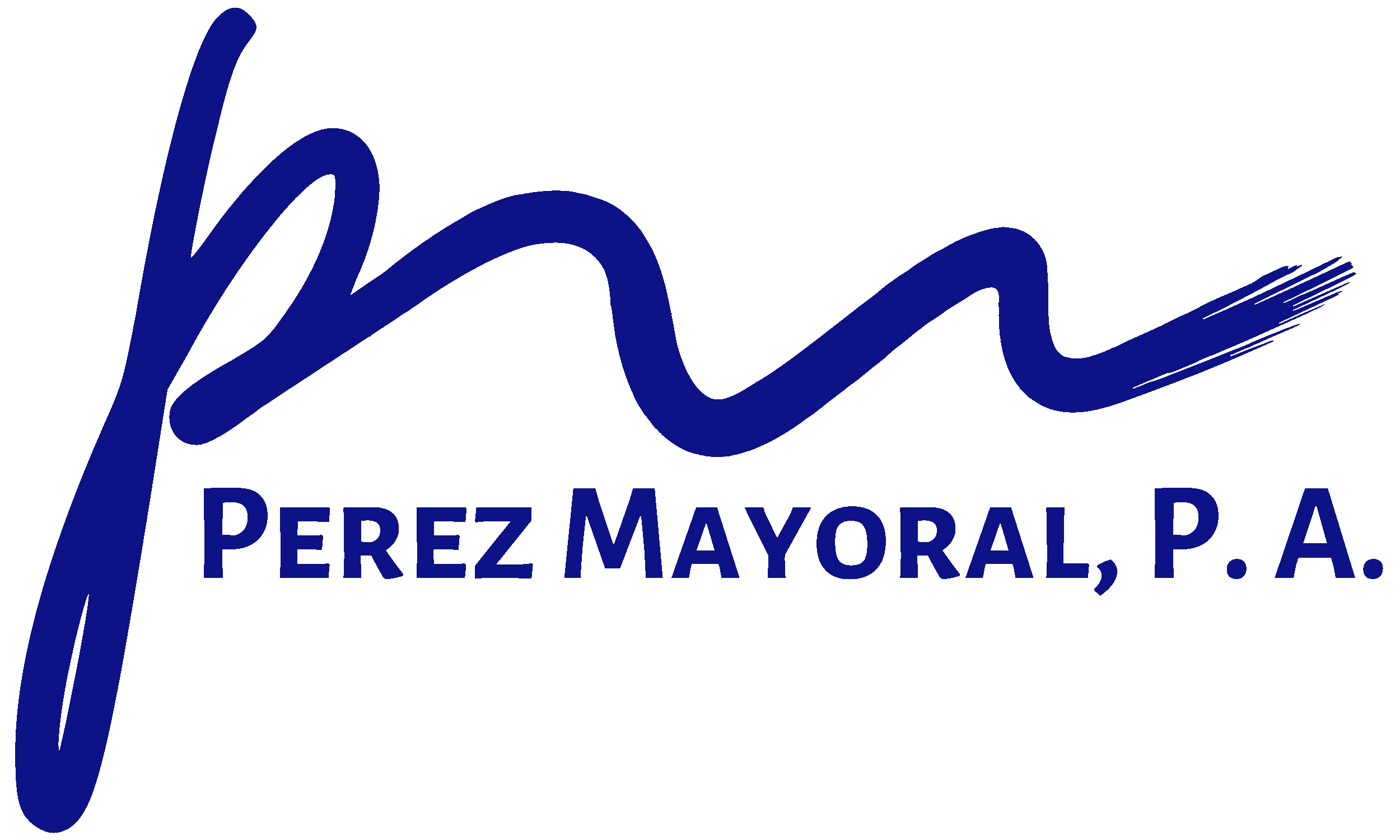At Perez Mayoral, P.A., we recognize that the intricacies of condo laws require an experienced hand to navigate. Without the guidance of an experienced Tampa, FL condo attorney, you could find yourself facing unforeseen legal complications. Your investment, both emotional and financial, is too valuable to leave to chance. Entrust protecting your investment to the seasoned team at Perez Mayoral, P.A. Contact us today and let us review the best options for your situation.
Common Condo Legal Issues
Owning a condo brings its unique set of legal challenges. From disputes over common areas to discrepancies in association fees, a myriad of issues can arise. Our Tampa, FL condo attorney is indispensable in navigating these waters, ensuring that your rights as an owner are protected. They can provide guidance on bylaws, assist with disputes against the condo association, or even represent you in litigation. Additionally, understanding the ins and outs of state laws ensures that any advice you receive is accurate and tailored to your situation. Working with Perez Mayoral, P.A. can help ensure your condo ownership experience is hassle-free.

Condo Association Governance
Navigating the complexities of condo association governance can be daunting. This system oversees everything from maintenance and repairs to bylaws and budgeting. At the heart of it, the board members play a pivotal role, ensuring smooth operations and adherence to regulations. It’s vital for condo owners to understand their rights and responsibilities within this framework. This knowledge allows for informed decision-making, promotes transparency, and fosters a harmonious living environment. If disputes arise or clarity is needed, seeking legal counsel is a wise move. Professionals well-versed in the nuances of association governance can be invaluable in achieving equitable solutions.
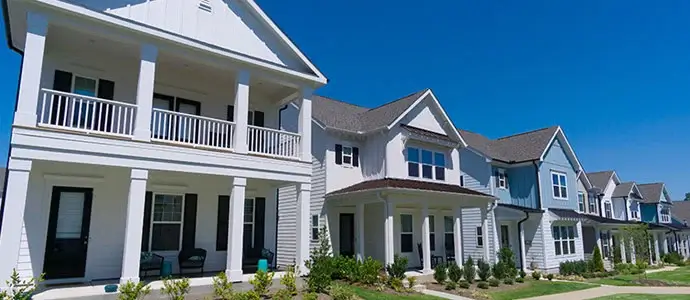
By-Laws and Rule Violations
Understanding and adhering to condo by-laws is crucial for maintaining a harmonious living environment. These rules, often detailed and specific, govern various aspects of condo living, from pet restrictions to parking guidelines. Rule violations can lead to disputes or even litigation. When disagreements escalate, it’s essential to have expert guidance on your side. Our Tampa condo attorney can clarify intricate by-laws, represent owners in disputes, and ensure adherence to regional regulations. Their expertise provides peace of mind, ensuring that both rights and responsibilities are clearly defined, fostering a respectful and cooperative community for all residents.
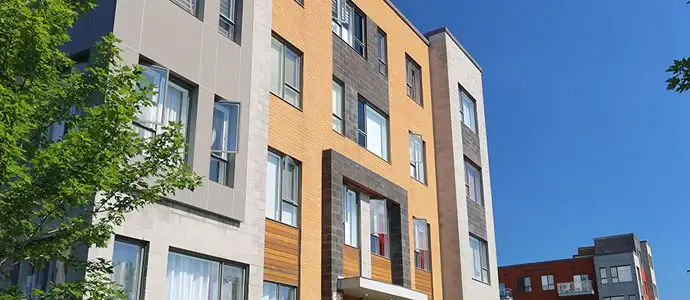
Navigating Alteration and Renovation Disputes
Renovating your condo space should be exciting, but it can sometimes lead to unexpected disputes. While personalizing your unit, you might unknowingly go against the condo’s guidelines or upset a neighboring resident. Tensions often arise from misunderstood rules or concerns about shared amenities. Before embarking on a project, it’s wise to familiarize yourself with the community’s renovation guidelines. If disagreements do arise, it’s beneficial to have an expert in your corner to find a fair resolution. By understanding the rules and seeking the right advice when needed, you can ensure your renovations are smooth and dispute-free.
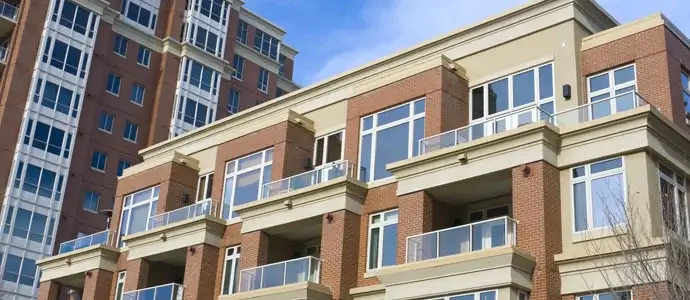
How We Help People in Their Disputes with HOAs (with Attorney Erik Perez)
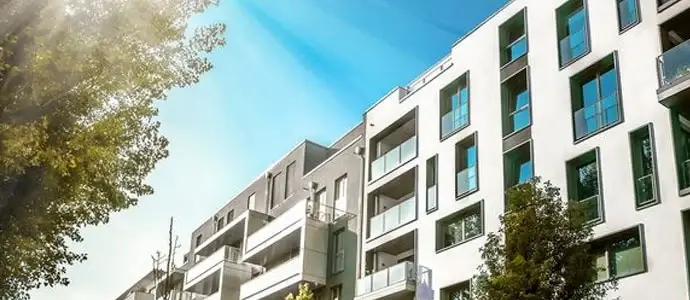
Tips for Buying a Condo and Avoiding Future Legal Issues
Buying a condo is an exciting venture, but it’s essential to consider several legal aspects to ensure a smooth and informed purchase. At Perez Mayoral, P.A., we’ve supported numerous clients through this process. As experienced Tampa, FL condo attorneys, we’re here to share valuable insights that can guide you in making the best decision.
Understanding the Status Certificate
One of the first steps in purchasing a condo is to review the status certificate. This document is a comprehensive report that provides critical information about the financial and legal state of the condo unit and the entire complex. It includes details on the condo corporation’s budget, any outstanding or anticipated fees, and the rules and regulations of the community.

Evaluating the Reserve Fund
Another crucial aspect to consider is the reserve fund. This fund is essential for covering the costs of major repairs and replacements in the condo complex. A healthy reserve fund indicates a well-managed property, reducing the likelihood of unexpected special assessments in the future. As your Tampa condo attorney, we can help you understand the fund’s status, how it’s managed, and what expenses it covers, ensuring you’re making an informed investment.
Reviewing Condo Association Bylaws and Rules
Every condo community operates under a set of bylaws and rules. These govern everything from pet ownership to renovation restrictions. We guide our clients through these documents, helping them understand how these rules might align with their lifestyle and if there are any red flags or deal-breakers.

Investigating Insurance Coverage
Insurance is a vital aspect of condo ownership. It’s important to understand what the condo association’s policy covers and what you, as an owner, need to insure separately. This can include personal property, liability, and any improvements made to the unit. We assist our clients in deciphering these details, ensuring they’re adequately protected from the outset.
Guiding Your Condo Purchase
At Perez Mayoral, P.A., we take pride in guiding our clients through the complexities of condo buying. As dedicated Tampa condo attorneys, we understand the intricacies of condo law and how it applies to your purchase. Our goal is to ensure you step into condo ownership with confidence, fully aware of your rights and responsibilities.

Strategic Review Of Documents For Condo Owner Advocacy
Condo living comes with its unique set of rules and regulations outlined in the association’s documents. At Perez Mayoral, P.A., we understand the significance of safeguarding homeowner interests through meticulous condo document reviews and a Tampa, FL condo attorney is ready to assist you when needed. Here, we delve into key aspects every homeowner should consider to protect their investment and rights.
- Understanding Governing Documents:
One of the first steps in safeguarding homeowner interests is a thorough understanding of governing documents. These typically include the declaration, bylaws, and rules and regulations. Knowing these documents inside out is crucial for making informed decisions.
- Declaration
The declaration outlines the rights and obligations of homeowners, as well as the overall structure of the condominium. It’s essential to review this document to grasp property boundaries, common areas, and any restrictions on use.
- Bylaws
Bylaws govern how the condo association operates. They detail the responsibilities of the board, election procedures, and meeting protocols. Homeowners should pay close attention to these to ensure fair representation and decision-making processes.

- Rules and Regulations
Specific rules and regulations may be outlined to ensure harmonious condo living. These can cover anything from pet policies to noise restrictions. Understanding and complying with these rules contribute to a cohesive community environment.
- Financial Review
Delve into the financial aspects of the condo association. This includes budget reports, reserve fund details, and any pending assessments. A transparent financial overview ensures homeowners are aware of their financial responsibilities and the association’s fiscal health.
- Restrictions on Alterations
Homeowners planning alterations should review any restrictions outlined in the governing documents. Some changes may require association approval, and understanding these requirements beforehand prevents legal complications.
- Maintenance Obligations
Document reviews should highlight maintenance responsibilities. Knowing what maintenance tasks fall under the association’s purview and what homeowners are responsible for helps in preventing disputes.

- Insurance Coverage
Understand the condo association’s insurance coverage and ascertain what homeowners need to cover individually. Adequate insurance protects homeowners from unexpected events and liabilities. Our Tampa condo attorney from our firm can help with insurance issues.
- Dispute Resolution Mechanisms
Governing documents often outline procedures for dispute resolution. Knowing these mechanisms provides homeowners with a roadmap for addressing conflicts effectively and amicably.
- Amendments and Changes
Keep an eye on any proposed amendments or changes to the governing documents. Homeowners should actively participate in association meetings to stay informed and voice their opinions on potential alterations that may impact them.

Tampa Condo Law Infographic
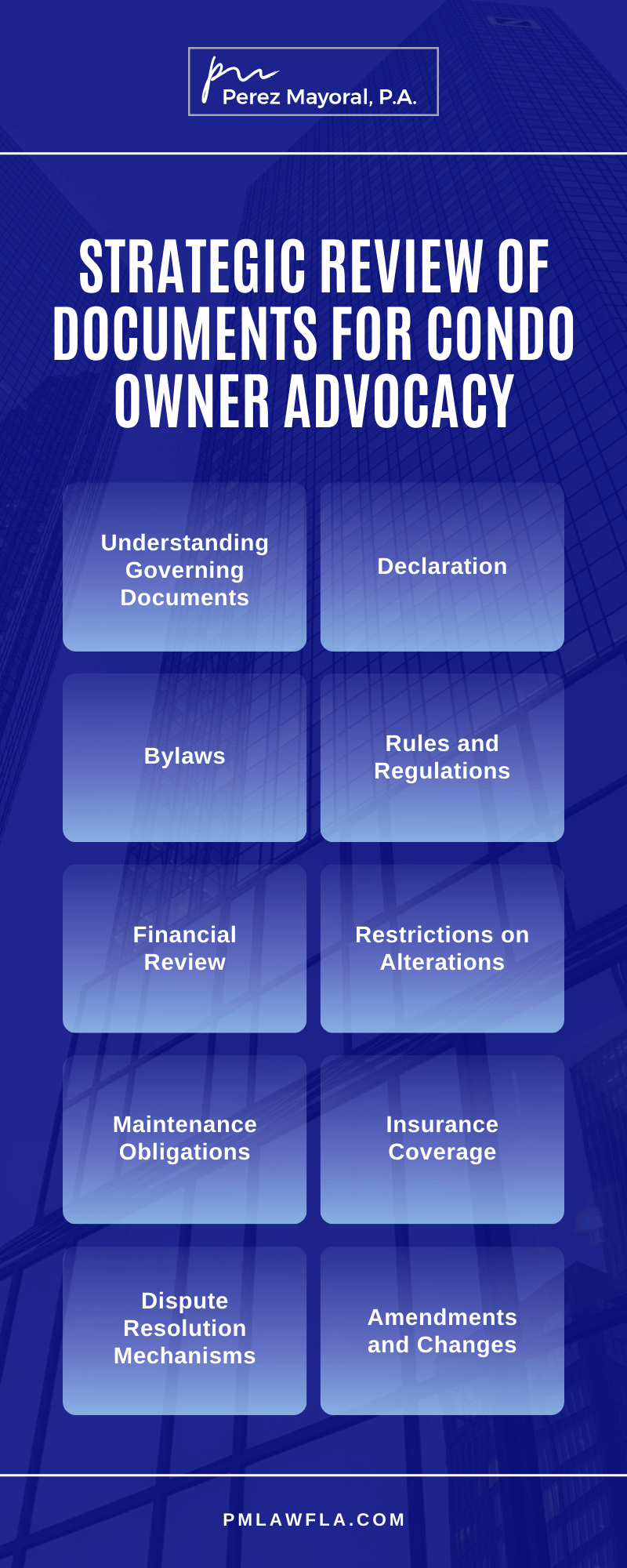
Tampa Condo Statistics
Florida is home to approximately 1.5 million condominium units, representing one of the largest condo markets in the U.S. Condos are prevalent in urban and coastal areas, offering affordable housing and vacation options. About 50,000 condo associations manage these properties, housing nearly 10 million residents.
Older buildings, particularly those over 30 years old, face significant structural and maintenance challenges, prompting stricter inspection and repair regulations after high-profile incidents. Condos also contribute significantly to Florida’s real estate economy, with high demand from retirees, families, and international buyers.
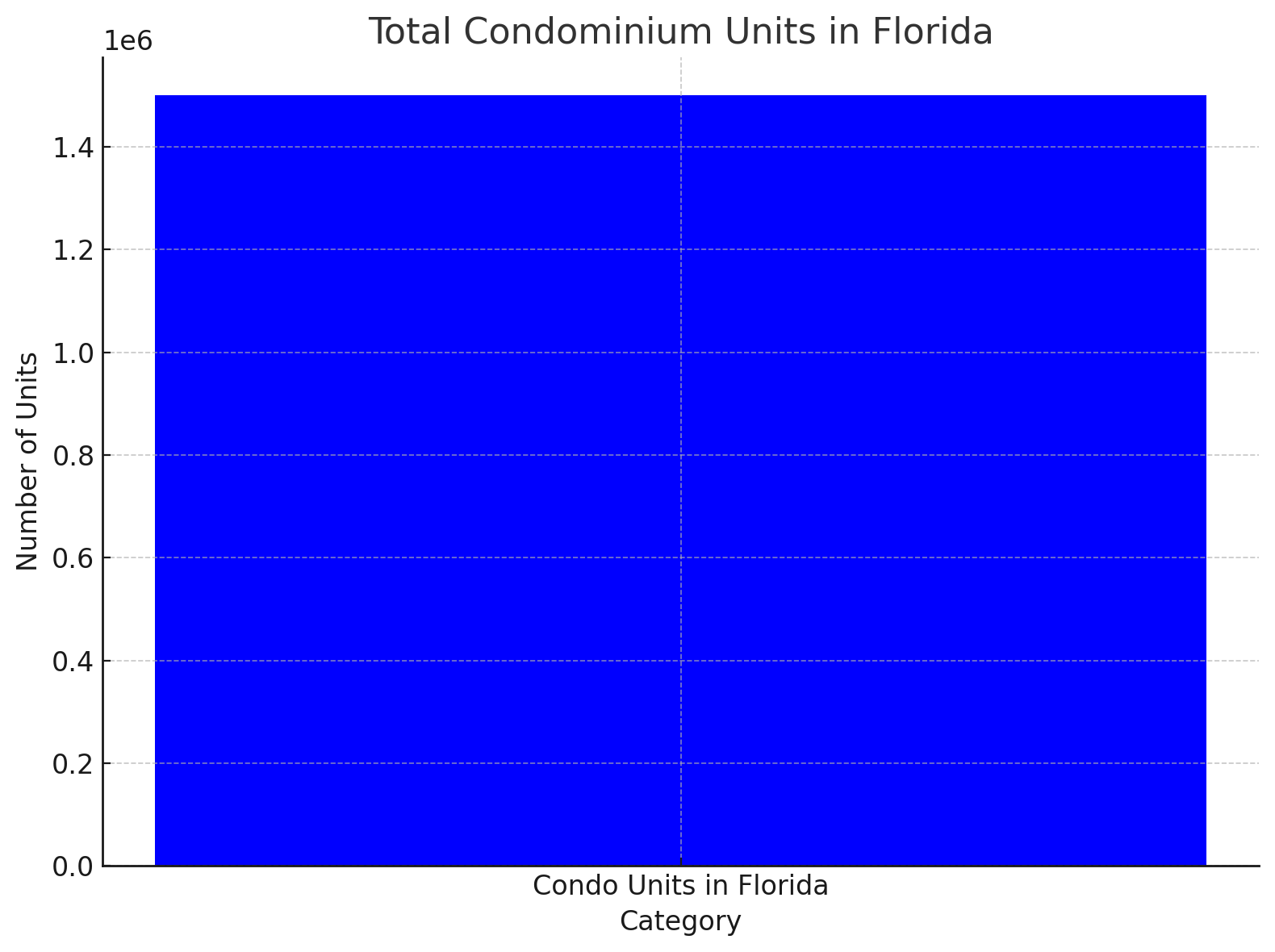
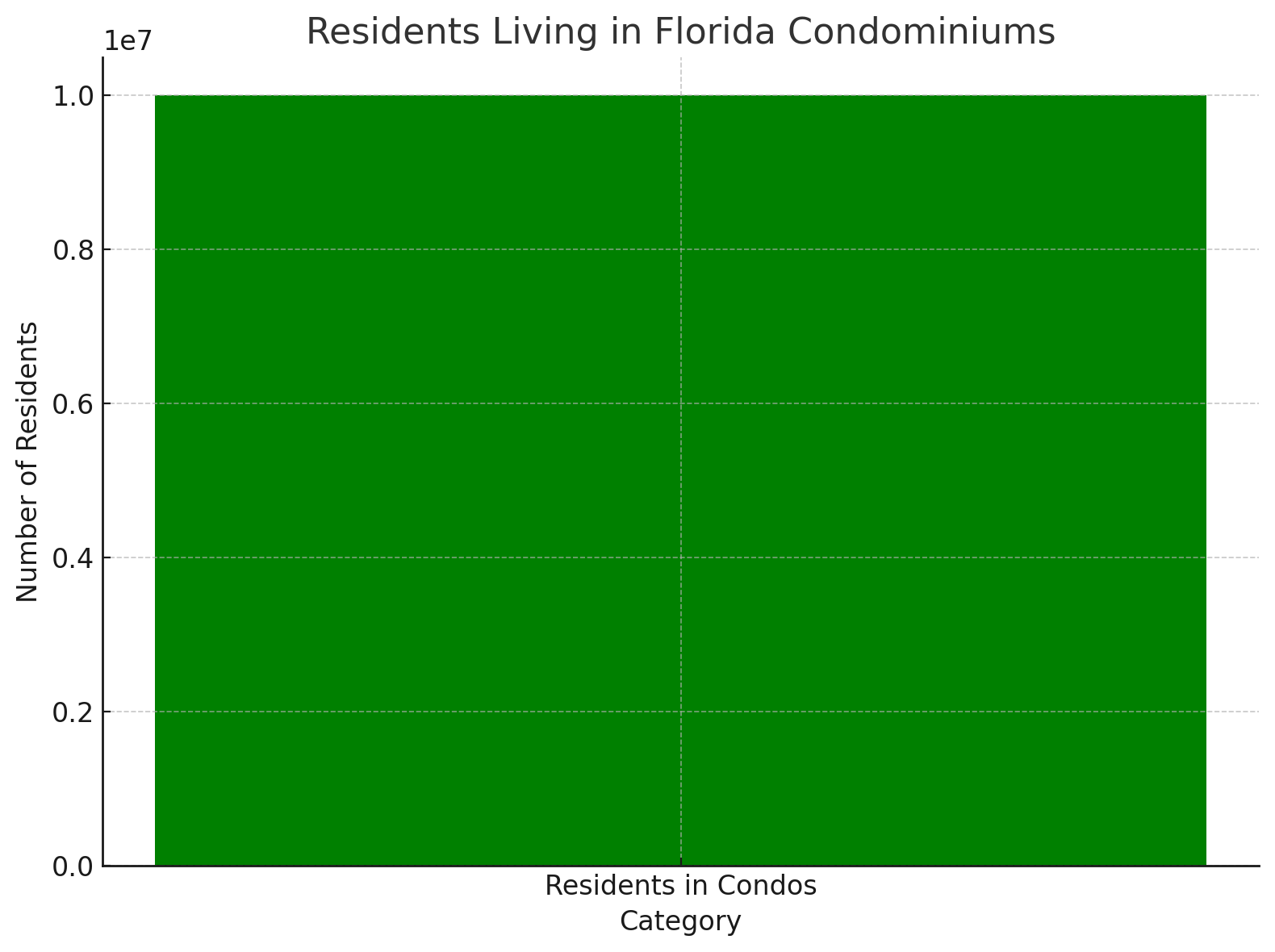
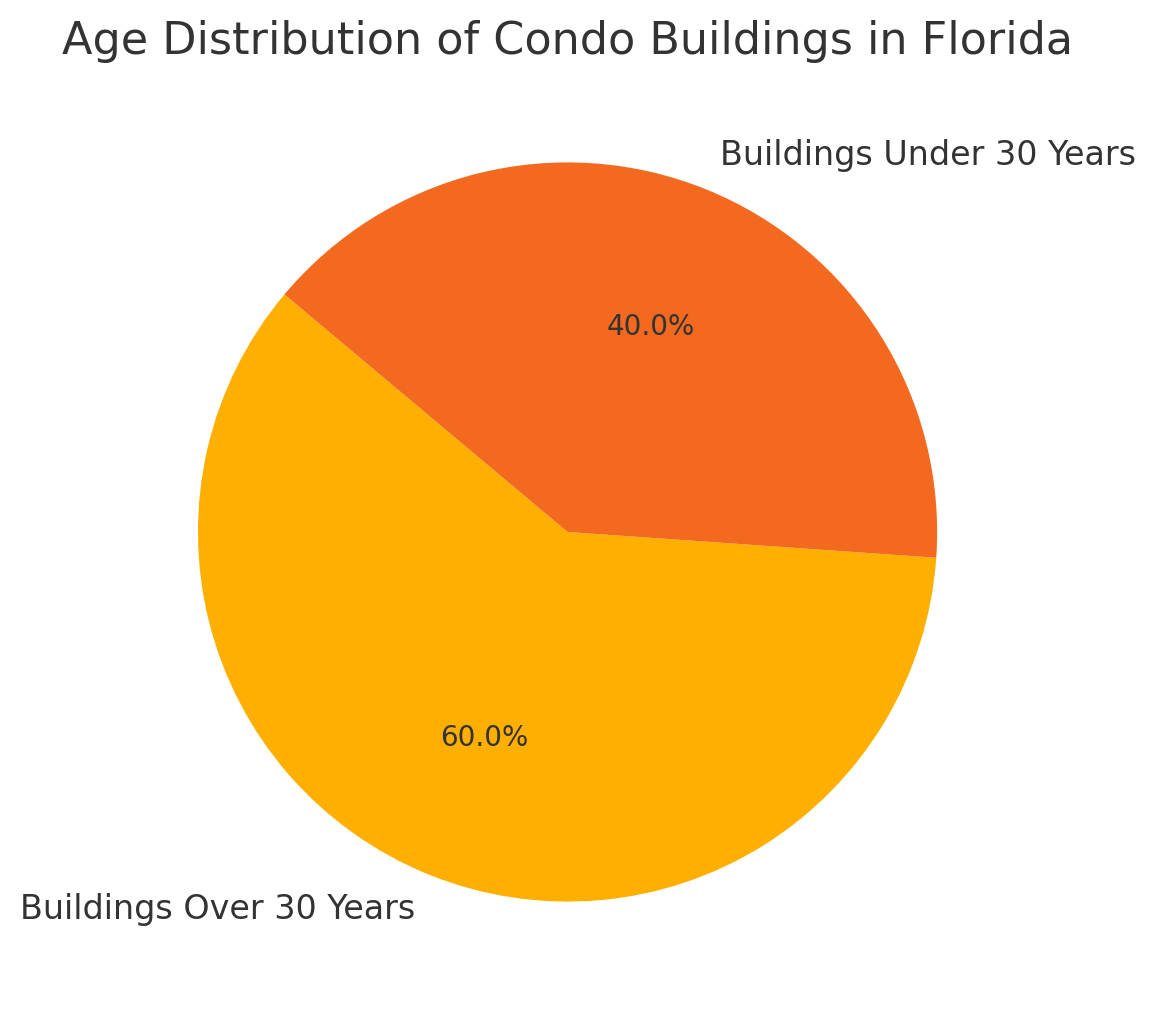
Tampa Condo Law Statistics
There’s no denying that condo living is popular in the Tampa area – there are more than 100,000 condo units in the Tampa Bay area. However, owning a condo also means dealing with a condo association and its bylaws and that’s where problems occur for many owners.
Disputes can arise over issues such as maintenance fees, bylaw enforcement, or renovation permissions, which can complicate the living situation. These conflicts may require legal intervention to resolve, ensuring that the rights of condo owners are protected and association rules are fairly enforced. If you are having issues with your condo association, contact our office to find out what legal options you may have.
Tampa Condo Law FAQs
Owning a condo in Florida offers a unique lifestyle, blending community living with individual ownership. Yet, it also brings specific legal and administrative considerations that are distinct from other types of property ownership. At Perez Mayoral, P.A., our Tampa condo attorney is knowledgeable about the laws governing condo ownership. Our team is dedicated to helping you understand the various aspects of condo ownership, ensuring your experience is both positive and legally sound.
Are There Restrictions on Selling My Condo?
Yes, there can be restrictions. Condo associations often have specific rules regarding the sale of units. These might include requiring board approval for potential buyers or imposing certain fees. It’s important to review your association’s bylaws or consult with our Tampa condo attorney to understand any applicable restrictions and how they might impact your sale.

What Are My Voting Rights in Condo Association Meetings?
As a condo owner, you typically have the right to vote on significant decisions affecting the condo community. This includes electing the board of directors, approving budget changes, and making decisions on major projects. Your voting rights, including how votes are counted and what constitutes a quorum, should be detailed in your condo’s governing documents. Often, busy lives can distract us from voting, but it’s worth investing the time and energy to ensure you and your neighbors are governed by a fair and responsible board.
How Are Maintenance Responsibilities Divided With a Condo?
In a condo, maintenance responsibilities are typically divided between the individual owner and the condo association. As an owner, you’re responsible for maintaining the interior of your unit. The association handles maintenance and repairs of common areas and exterior elements. It’s important to understand these distinctions to avoid disputes and ensure proper care of the property.

What Happens if I Don’t Pay My Condo Association Fees?
Failing to pay your condo association fees can have serious consequences. Late fees may be applied, and in severe cases, the association can place a lien on your property or initiate foreclosure proceedings. Staying current with these fees is important, as they fund the essential maintenance and operations of the condo community.
Can a Condo Association Prohibit Short-term Rentals?
Yes, a condo association can prohibit or restrict short-term rentals. These restrictions are typically outlined in the association’s bylaws or declaration. They may completely prohibit such rentals or set specific terms and conditions under which they are allowed. As short-term rental policies can impact the nature of the community, it’s important to be aware of these rules.
Contact Our Tampa Condo Attorney Today
Owning a condo in Florida comes with a set of unique considerations and responsibilities. At Perez Mayoral, P.A., our Tampa condo attorney is committed to providing owners with the legal support and guidance they need. Whether you have questions about your condo association’s rules, need help with a dispute, or require legal representation, our team is here to assist you. Contact us for personalized advice and expertise in condo law, ensuring your rights are protected and your condo living experience is enjoyable.
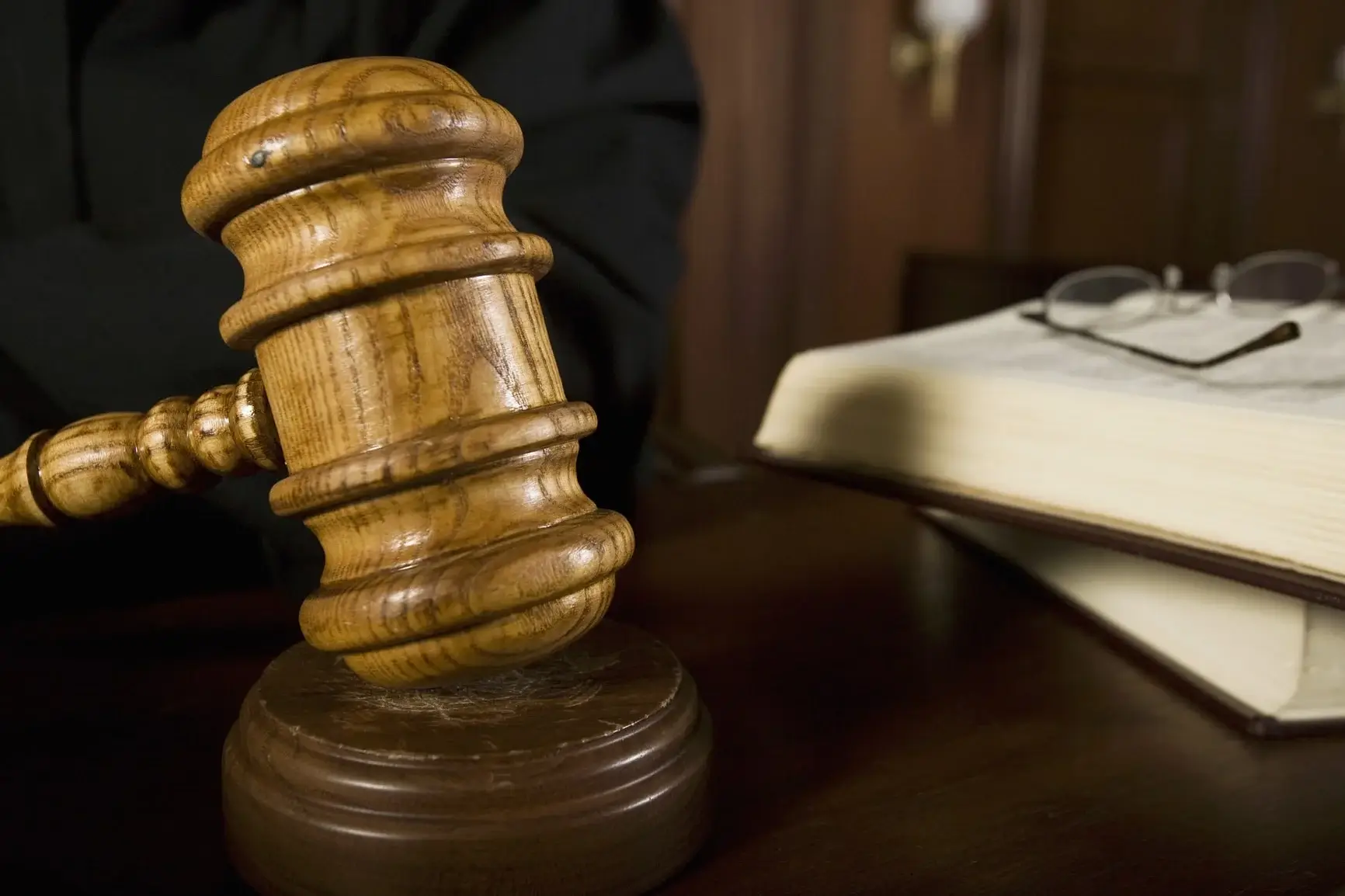
Condo Glossary
At our firm, we understand the unique legal needs of condominium communities. As your Tampa, FL condo attorney, we frequently assist with legal matters involving governance, financial management, and resolving disputes for condo associations and unit owners. Below, we’ve provided a glossary of key terms to help you better understand important concepts in condominium law.
Condo Association Governance
Condo association governance refers to the system of rules, regulations, and procedures established to manage and operate a condominium complex. These governance structures are typically outlined in the association’s governing documents, such as the declaration, bylaws, and rules and regulations. The association’s board of directors is tasked with enforcing these rules, maintaining the property, and ensuring compliance with local laws. Governance also encompasses financial planning, such as budgeting for operational expenses, handling reserve funds, and determining maintenance fees. A well-managed governance system helps maintain the property’s value and ensures a functional and harmonious community.

Bylaws
Bylaws are the foundation of a condo association’s operations. They provide a framework for how the association conducts its business and interacts with members. These rules outline the responsibilities of the board of directors, procedures for electing board members, and voting rights of unit owners. Bylaws may also cover specifics about meetings, dues, and penalties for violations. Adhering to the bylaws ensures that decisions are made consistently and fairly, reflecting the collective interests of the community. Condo owners should familiarize themselves with these rules, as they directly affect their rights and responsibilities within the association.
Reserve Fund
A reserve fund is a dedicated financial account maintained by the condo association to cover significant expenses such as roof replacements, HVAC repairs, or other major structural repairs. Unlike routine operating budgets, reserve funds are intended for long-term capital expenditures or emergencies. The fund’s adequacy is often an indicator of the association’s financial health. Regular contributions to the reserve fund by unit owners through monthly fees or assessments are crucial to avoid unexpected financial burdens in the future. Prospective buyers and current owners should review the status of the reserve fund to gauge potential future costs.

Status Certificate
A status certificate is an essential document for anyone buying or selling a condo unit. It provides detailed information about the unit’s legal and financial standing within the condominium association. Key elements of a status certificate include the current fees owed by the unit owner, any pending lawsuits involving the association, the condition of the reserve fund, and the condo association’s rules. Reviewing this document helps buyers understand their potential obligations and identify any red flags. Sellers may also use the status certificate to demonstrate compliance with their association’s financial requirements.
Dispute Resolution Mechanisms
Disputes within condo communities can arise for various reasons, from disagreements over fees to conflicts about rule enforcement. Dispute resolution mechanisms are procedures outlined in the condo association’s governing documents to address such issues. These mechanisms often involve mediation, where a neutral third party facilitates discussion, or arbitration, where a binding decision is made by an independent arbitrator. In some cases, litigation may be necessary if disputes cannot be resolved through alternative means. These processes aim to resolve issues efficiently while preserving relationships within the community.
For those going through condominium legal issues, having an experienced condo attorney can help protect your interests and provide clarity on association rules and regulations. At Perez Mayoral, P.A., we’re here to guide you through every step of the process. Contact us today to discuss how we can assist with your condominium legal needs.

"*" indicates required fields
Perez Mayoral, P.A. combines the powerful and diversified services of a large law firm with the personal attention of a boutique practice. Get in touch with us for a consultation? Whatever your legal problem, we will be happy to discuss your options and provide you with the professional help you need.
